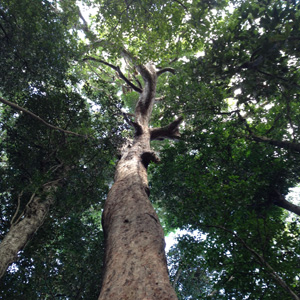In mostly urban areas some wildlife can be seen as a potential problem or even threat. Flying fox (Pteropus sp.) is one of those species that is often complained about in cities and large towns. Those complaints are related to smell and noise of the camps. Added to that is the fear of the Australian Bat Lyssavirus and Hendra virus. The transmission to humans of these viruses is extremely rare. For more information on the Bat Lyssavirus click here and for more information on the Hendra virus click here.
As professionals in charge of recommending tree species for council parks and gardens, and private or corporate green spaces where bats are seen as a potential problem we have to understand bat behaviour and what are the plant species most likely to attract them.
Pteropus is a pollinator that can travel long distances for food and is therefore extremely important for plant genetic biodiversity. For those interested, I suggest reading the article published in Plos One: “Long-Distance and Frequent Movements of the Flying-Fox Pteropus poliocephalus: Implications for Management” by Billie J. Roberts mail, Carla P. Catterall, Peggy Eby and John Kanowski which you will find here.
Of course we have to keep in mind that most often than not it is the degradation and loss of habitat that forces animal species to move within human occupied territory.
|
|
About Patrick Regnault
I have worked in the horticultural and landscaping industry for over 35 years in three different countries.I am a member and Registered Horticulturist with the Australian Institute of Horticulture and member of the Housing Industry Association. I am the owner of Interactive Landscapes, a successful structural landscaping and landscape design business. I believe that what gardens and gardening do is to reconnect people with the fundamental elements of nature. A good gardener will try and acquire a profound understanding of the balance of nature and endeavour to do the best to improve the environment in which the garden is situated. At Interactive Landscapes it is a philosophy that we put into practice when designing and creating a garden, no matter the size. Our name reflects this as we understand that gardens are a place of interaction. View all posts by this author » |










